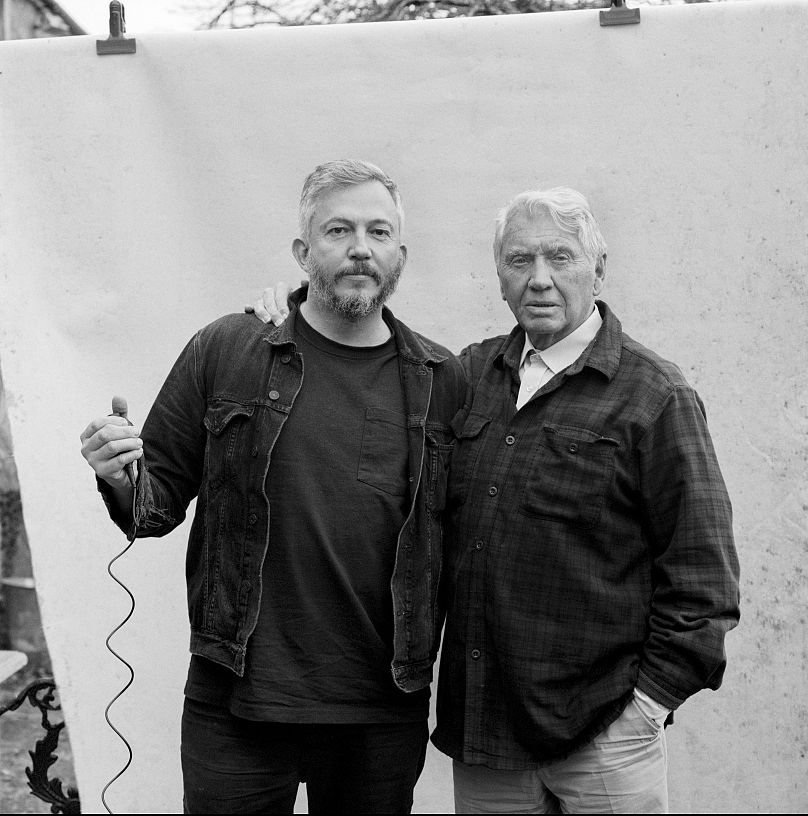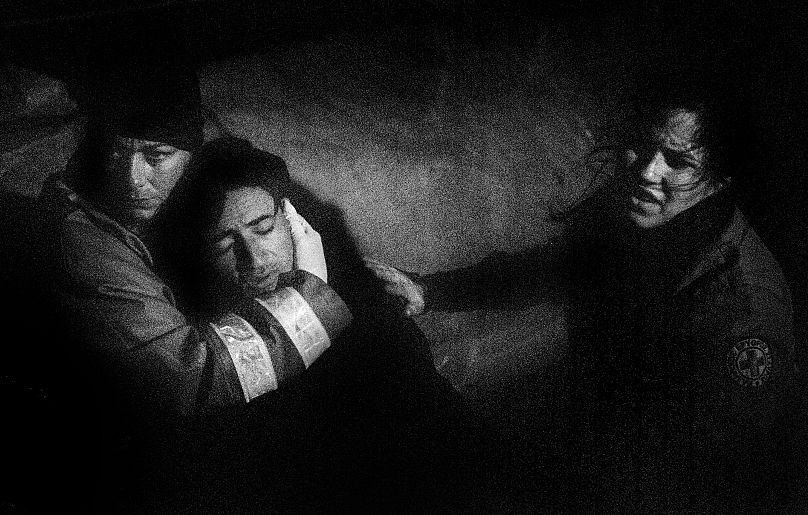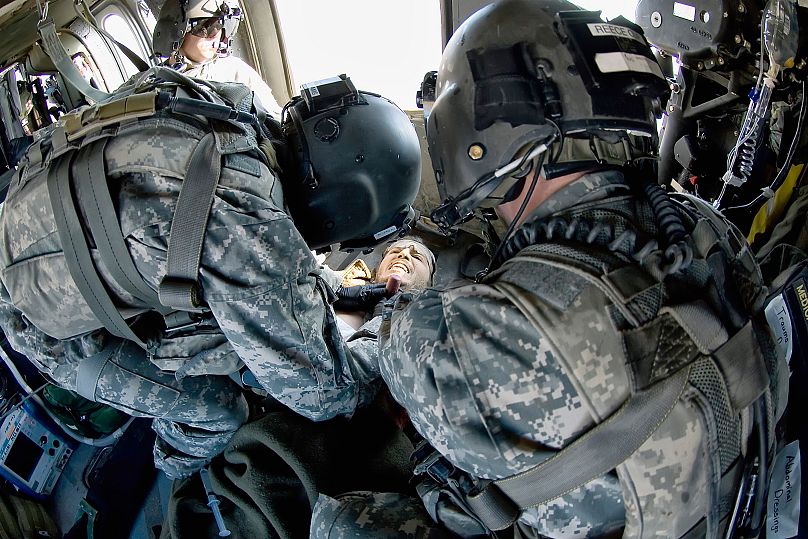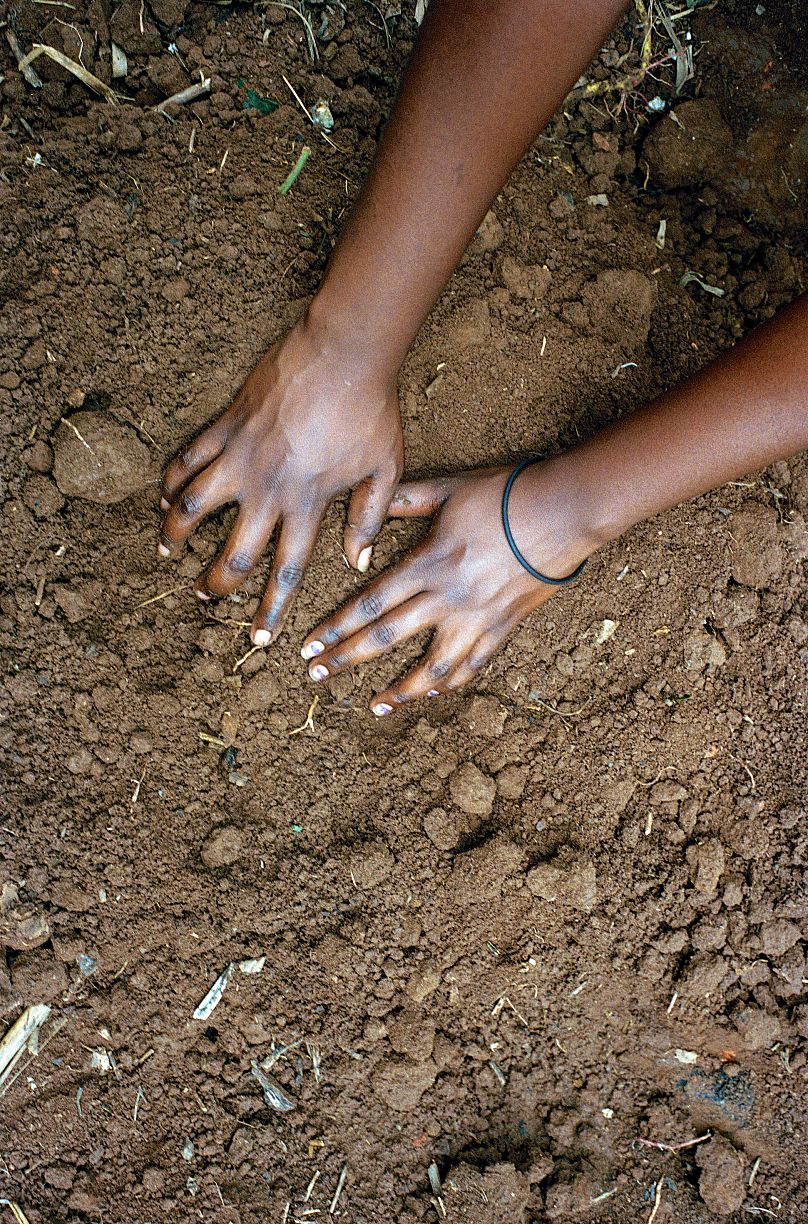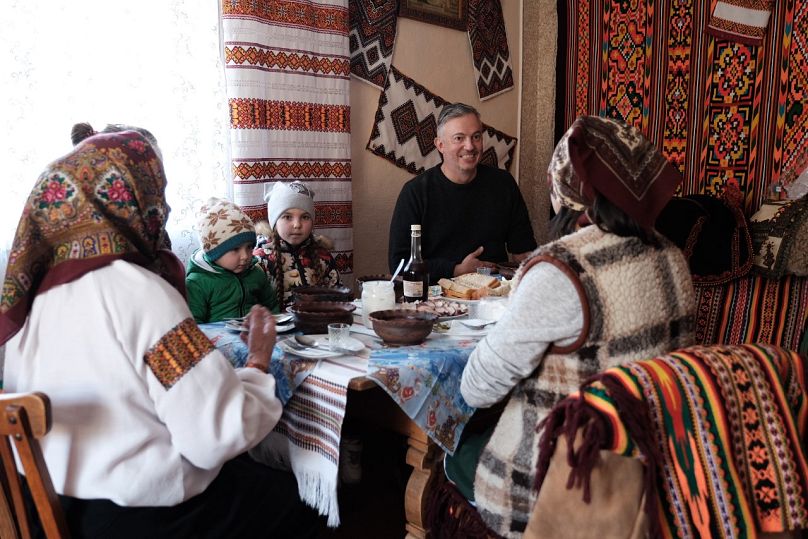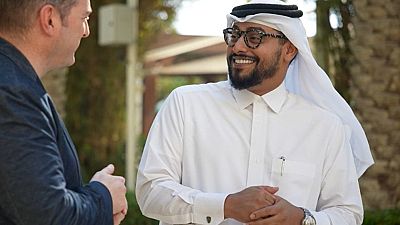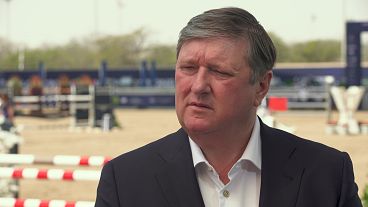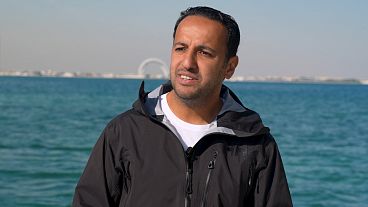Giles Duley is a photographer and CEO of Legacy of War Foundation. His world changed during a deployment to Afghanistan documenting the life American troops, when he stepped on an IED. A born survivor, Giles now spends his life highlighting the long-term impact of conflict.
The Dialogue sits down with inspirational people from across the globe with links to the Middle East and North Africa. Guy Shone explores what drives these extraordinary individuals.
Giles Duley is a force of nature. He’s experienced two life-changing incidents; a car accident that robbed him of a promising sporting career and an IED explosion that ripped his body apart. Yet despite this, Giles told The Dialogue that in some of his darkest moments, he wasn’t dwelling on his changing fortunes, he was asking himself, “What can I do better next time?”
Giles was 18 when he was in that car accident. Sport had been everything to him, and having that stripped away, left him, he says, “an angry man.” However, two small gifts changed his life.
“My godfather unfortunately passed away and his widow brought these two things he’d bought the week he died,” he explains. “One was an Olympus OM10 camera, the other was a book by the war photographer Don McCullin.”
Those gifts sparked something in Giles, and he spent his recovery in hospital planning to become a war photographer. Things didn’t exactly go to plan, but photography did become his bread and butter.
“I had some friends that were musicians and in bands,” he says, “and that just took off.” Giles found himself mixing with some of the biggest bands and names of the time, from Oasis to Lenny Kravitz. But even with such dizzying success, Giles felt something was missing.
“I remember, I was 28 years old and doing a photoshoot…getting paid a ridiculous amount of money…and sitting in my hotel room, I cried and I felt completely empty,” Giles says. That cumulated six months later when Giles packed it all in.
What followed was a deep depression where Giles says he saw no purpose in life, that is, until he remembered those gifts from his godfather and his original intentions. He picked up a camera again and began to record the impact of war.
At 39, Giles was in Afghanistan documenting the life of American troops when they were ambushed. Running for cover, he stepped on an improvised explosive device.
“[I] really thought those would be the last moments of my life,” he says. What Giles did then tells you a lot about his character and perhaps his stubbornness.
“I remember in my mind thinking, ‘well, you know, you’re not going to make it, but you can keep going for a minute',” says Giles. That turned into five minutes, which turned in to half an hour…and of course, you know the rest, as Giles is still going strong.
He lost three limbs in that explosion. He spent more than 40 days in intensive care, where things were touch and go. Instead of succumbing to despair, Giles says he created “a world in my own mind.”
That ability to use his imagination as a form of escapism made Giles realise no matter what the circumstances, people can improve themselves “as artists, creatives, as people.”
Over many months, Giles had to come to terms with his new reality, being told he would never walk again, would never live independently, with no chance of ever working as a photographer.
Clearly the doctors didn’t know Giles very well. Not only is he still a world-class photographer, he’s set up the Legacy of War Foundation and has found fame in his ‘The One Armed Chef’ tv-series.
Legacy of War Foundation started as a crowdfunding idea. It was a lightbulb moment for Giles. “We raised quarter of a million dollars in a week,” he says, adding that made him think about setting up “a proper charity” and doing it formally.
And that’s exactly what he did, but with a twist. The Foundation aims to challenge what it describes as being ‘the traditional neo-colonial concepts in the aid sector’ and design a model that’s led by its beneficiaries.
In Rwanda, for example, the Foundation has birthed the Land for Women initiative; co-operative farms for genocide survivors. “We bought the land and gave it to them, so they became the landowner, which changed the power dynamic because now they choose to work with us,” Giles says.
Giles is also highlighting the long-term impact of conflict through his cooking show. A cross between a documentary about the lives of families and places ruined by war and a cookery show, which sees Giles ‘break-bread’ with families.
“I have a rule that I won’t photograph anyone if I haven’t eaten with them first," he explains. The reason is simple; for Giles, food is the big connector. It’s also a form of therapy, “a way to build relationships,” he muses.
“I've seen the worst in humanity, and I think psychologically, obviously, that takes an impact,” he says. “And then one day I realised that actually food is the opposite…food is how we build communities, it’s how we bring people together.”
Giles has been described as an inspirational figure, but he says he “just wants to be an example.” Because Giles is living a life less ordinary, a life to the full and nothing is holding him back.

